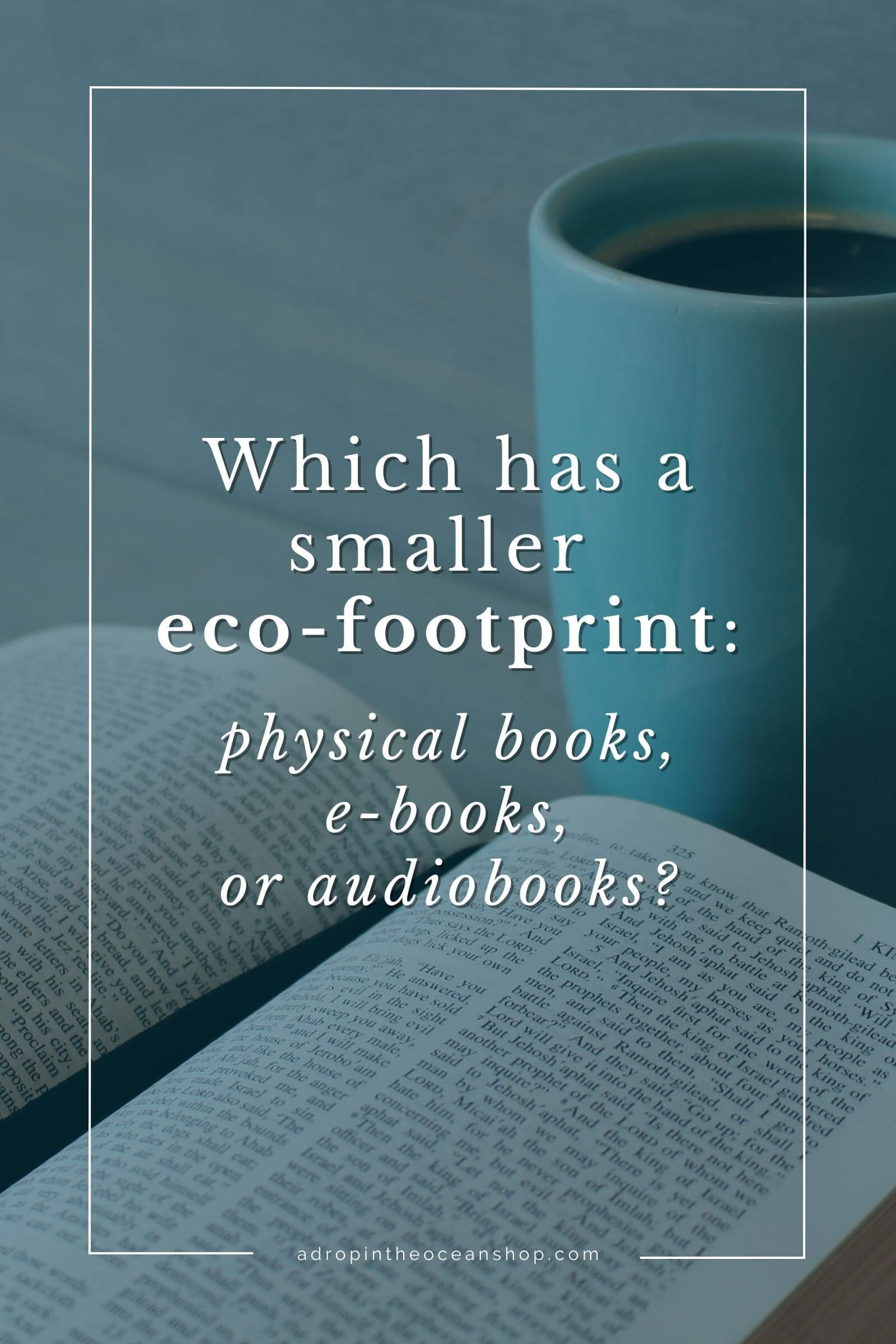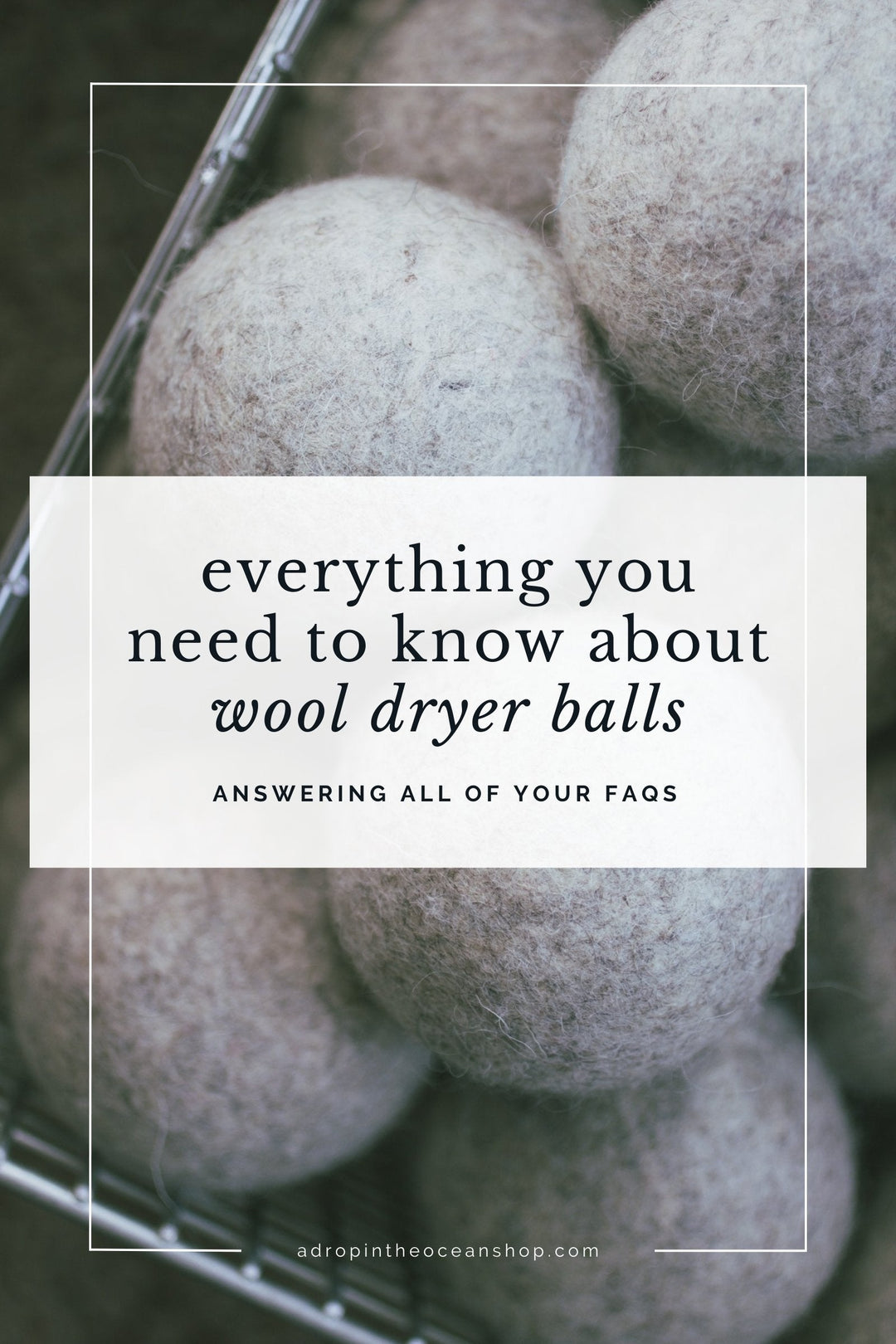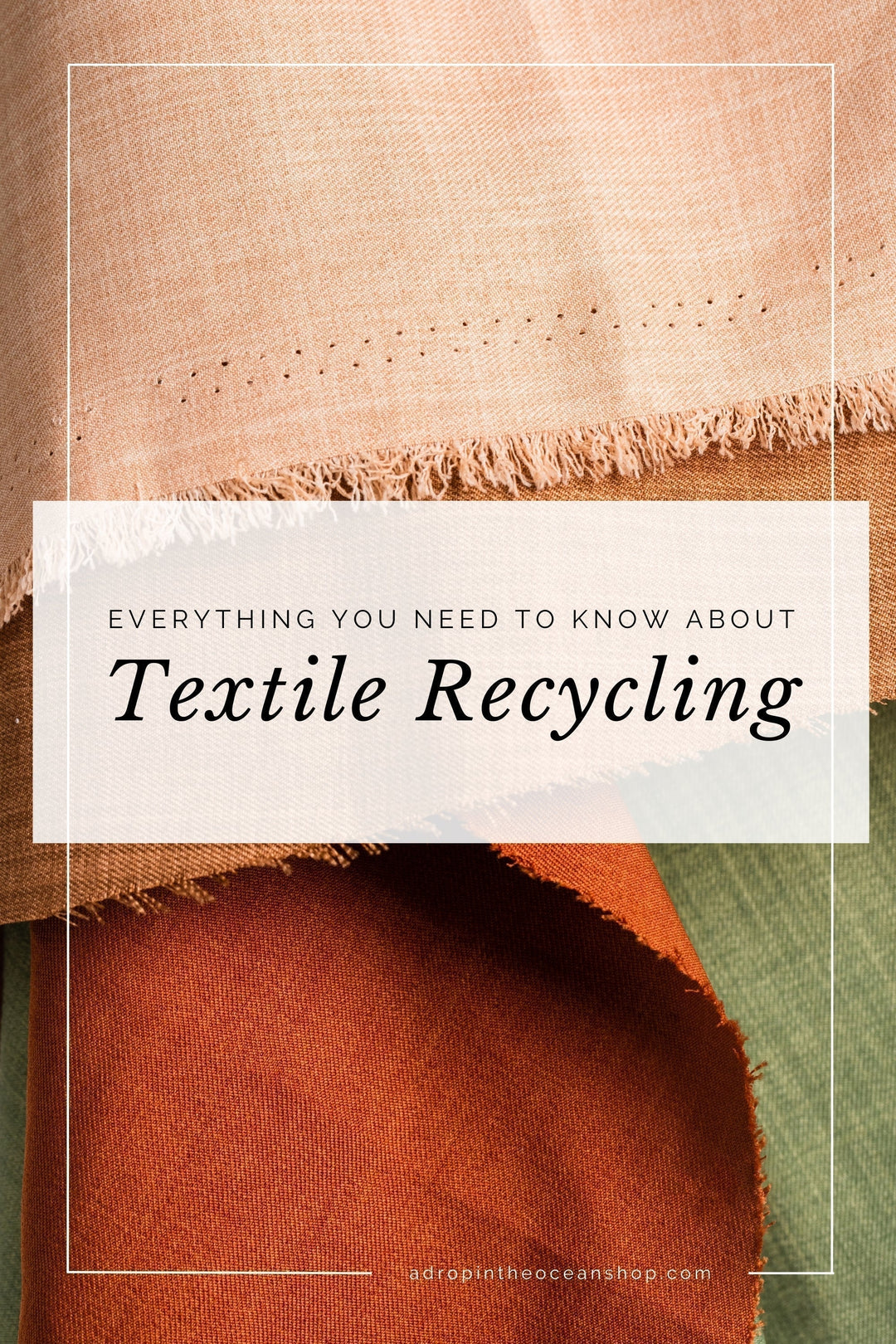Which has a smaller eco-footprint: Physical Books, eBooks, or Audiobooks?

This post first appeared in our weekly Make Waves Mondays email series on January 30, 2023.
Hellooooo friend! I’m so excited for today’s post because today marks the RETURN of our mini-series, Small Change Big Impact 🥳🎉
If you’re new around this corner of the interwebs, Small Change Big Impact was introduced in 2021 as a monthly mini-series within the blog to highlight one small change that can actually have a pretty big impact - without much thought or effort.
In that first year we covered everything from unsubscribing to unwanted emails to turning off heated dry on your dishwasher. And all of those small swaps added up to a whopping 1500 pounds of CO2 saved - per person, per month!
So this year, we’re bringing back Small Change Big Impact with a whole new set of easy changes you can implement today that will move the needle towards a sustainable future for all living things.
And we’re kicking off this revamped mini-series with BOOKS! 📖 Specifically, we’re asking the question, “Which is better - physical books, e-books, or audiobooks?”

What’s the environmental impact of a physical book?
There are a bunch of different numbers out there for the environmental footprint of a single book - and of course it’s going to vary widely depending on the size and weight of the book, the type of paper it’s printed on, and how far it has to travel to get to your hands.
Numbers seem to range anywhere from 1kg carbon dioxide equivalent (CO2e*) to 7.5kg CO2e for a single paperback book.
* Carbon dioxide equivalent, or CO2e, is the standard way to express something’s carbon footprint. Carbon dioxide is the most common greenhouse gas, but it is not the only greenhouse gas.
For example, methane is about 25 times more potent than carbon dioxide, and nitrous oxide is about 300 times more potent than carbon dioxide. Since any product or action can emit several types of greenhouse gases, CO2e standardizes these numbers.
CO2e represents the “total climate change impact of all the greenhouse gases caused by an item or activity rolled into one and expressed in terms of the amount of carbon dioxide that would have the same impact.” (definition pulled from the book “How bad are bananas?” by Mike Berners-Lee)
But one 2012 study from researchers in Canada calculated that the average paperback book has a carbon footprint of approximately 2.7kg CO2e, so we’re gonna use that number here.
That’s about the equivalent of driving 6.7 miles in an average car.
What’s the environmental impact of an e-book?
The numbers for the environmental footprint of an e-book are bit trickier to find, but we’re gonna do our best!
According to a 2009 study, the production of a single Kindle e-reader emits about 168kg CO2e. That’s the equivalent of driving about 417 miles in an average car.
Numbers vary here, too, but the average lifespan of an e-reader is about 3 to 5 years. So let’s just take that on the high end of five years and say that a Kindle’s footprint over one year is about 33.6kg CO2e - or the equivalent of driving about 83 miles.
But of course there’s more emissions than just the production of the Kindle. You gotta charge it regularly, too! If a Kindle takes about 3 hours to fully charge from a dead battery, that’s about 0.5 kilowatt hours (kWh) of energy used to charge the battery.
Now let’s say you spend one hour reading on said Kindle each day. One charge is gonna last you about three weeks. So over the course of one year, charging your Kindle every three weeks, that’s gonna be about 8.7kWh of electricity - or 3.8kg CO2e - or 9 miles driven in an average car.
So between making the Kindle and charging it for a year, we’re looking at an annual carbon footprint of about 37.4kg CO2e, or driving approximately 93 miles in an average car.
What’s the environmental impact of an audiobook?
Okay so these numbers basically don’t exist. But here’s what I can find (and this is where things got real fun for Data Nerd Krystina 🤣):

Bear with me here…
- A 2019 study found that storing, sharing, and streaming music files emits 200-350 million kg CO2e per year. Let’s take the average at 275 million kg CO2e per year.
- In that same year, 2019, about 1.8 trillion songs were streamed, and about 330 million songs were downloaded. So let’s say that that 275 million kg CO2e was emitted from 1,800,330,000,000 songs. That means each song’s footprint was about 0.00015kg CO2e.
- If one song is an average of 3 minutes and 30 seconds, the average carbon footprint of one minute of audio is about 0.000043kg CO2e.
👉 Taking all those numbers together, if the average audiobook is 10 hours long, the average footprint of streaming or downloading a single audiobook is about 0.026kg CO2e - or driving about 0.07 miles in an average car.
Phew! 😤 Okay that was a lot of numbers but I hope that you enjoyed the journey as much as I did 🤣🤣
Now, you’ll notice we didn’t include the environmental footprint numbers of downloading an e-book to your Kindle. Text files are incredibly small, so the impact is pretty close to negligible. The “meat” of the e-book’s footprint is in the production and charging of the Kindle itself.
Audiobooks, on the other hand, typically don’t involve purchasing new tech to listen to them. Whether you’re purchasing or borrowing your audiobooks, you’re probably listening to them on a device you already own, like your phone or computer, and listening to said audiobook likely isn’t draining your device’s battery much - especially not to the point of needing to charge it more often.
So for audiobooks, the impact is really just from streaming and storing the audio files. Which as you can see are incredibly tiny.
So which is better - physical books, e-books, or audiobooks?
Well, friend, like most things in sustainability, the answer to this one is going to [mostly] be, it depends.
Firstly, if you’re an audiobook person, keep on keeping on with those audiobooks. In basically any scenario, that’s gonna be the least carbon-intensive option of these three.
But if you absorb information visually and can’t do audiobooks - that’s where the “it depends” is gonna come into play.
As a recap, one physical book has a climate impact of about 2.7kg CO2e.
And a Kindle e-reader has a climate impact of about 37.4kg CO2e per year.
So if you read 14 different books or more in one year, e-books are going to have a lower footprint than physical books.
But if you only read a handful of books each year, physical books are gonna be the better option for you.
But no matter how you get your books, there are ways you can limit their impact even more 👇
11 ways to reduce the carbon footprint of your reading habits
Physical Books
1. Borrow books from the library! Libraries are the definition of the circular and sharing economies at their finest. We cannot consume our way into a sustainable future for all living things, so the less we produce, the better. Supporting libraries means one book gets way more life (and therefore has a lower carbon footprint) than purchasing a new book and letting it sit on your shelf.
2. Find a Little Free Library in your neighborhood - or start one yourself!
3. Host a book swap with your friends or community.
4. Buy used books instead of new. I’ve had good luck with Book Outlet* in the past. They’re not your traditional “used” books, but are often books that are overstock or returned to publishers directly - books that would otherwise be trashed. And bonus, my books have always arrived in minimal, plastic-free packaging, too!
* This is a referral link. If you make your first purchase at Book Outlet with that link, you can save $5 on your order of $25 or more.
5. Support publishers using recycled paper.
6. If you’re an avid reader, contact publishers directly and ask them to use 100% recycled paper in their books.
7. If a book is in completely unreadable condition, don’t send it to landfill! Properly recycling a book reduces its average footprint to 2.46kg CO2e.
eBooks
8. Buy refurbished tech! I recently asked our EcoWarrior Pod what their experiences have been like purchasing refurbished technology and the responses were overwhelmingly positive! So check out refurbished options before buying new.
9. Unplug your devices (and your chargers) when they’re fully charged. And don’t leave devices charging overnight. This one may take some habit-changing, but I promise it gets easier to remember over time!
10. Use your tech as long as possible. You don’t need to upgrade to the newest model with every new release. Choose devices that will last as long as possible, and care for them properly to extend their life.
11. When your tech does reach the end of its life, be sure to recycle it properly. There are so many elements in our devices that are highly resource-intensive to mine and produce, so the more we can recycle, the better.
So, friend, tell me - what’s your favorite book you’ve read recently? And was it a physical book, an e-book, or an audiobook? Comment below and tell me all about it!
Personally, I’m a physical books and audiobooks kinda girl. I don’t actually read all that much, so my footprint is for sure better spent with physical books than e-books. And weekly delivery routes are the perfect time for some audiobooks.
Have a great week, friend, and I’ll see you again soon!









We’re coming up on Earth Day and I was going down the rabbit hole on which mode of consuming books would be best for the planet (between ebooks and physical). This was a pretty good analysis, in my opinion, based on available information.
One thing that I think was missing was the production costs (or emissions from those costs) of producing the original audio file. I know that this would be amortized across all of the plays, but the initial production would be relatively substantial as recording studios use a ton of power. Just food for thought, thanks!
This was so interesting! I do a combo of paper books and ebooks, but I read about 100 books per year. Thanks for doing all the data-ing!!
Such an interesting article! As someone who has an e-reader but prefers to read physical books, this has given me something think about! Love the thoughtful and thorough research put in every article and newsletter.
Leave a comment